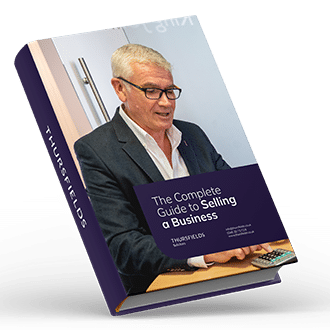The Process of Selling a Business
Selling your business can be a complex undertaking with far-reaching implications. From considering tax liabilities to understanding employment law obligations, there is a lot for company directors to take on board.
Although no two firms are ever the same, there is a standard process of selling a business which will usually be followed. Obtaining specialist legal advice is recommended to ensure everything runs as smoothly as possible.
Step 1: Understand the Reasons for Selling a Business
There are many reasons for selling a business. The owner could be wanting a new challenge or may be planning to retire. Alternatively, the company may be in financial difficulty or the sale could be the result of a shareholder or partnership dispute.
Whatever the motivation, it is important to consider whether selling the business is the right move for you, and if the company is well-equipped to carry on without you.
Step 2: Seek Legal Advice for Selling a Business
Once you are confident that parting with your company is the best thing to do, the next step should be to consult with a specialist mergers and acquisitions solicitor. Seeking legal advice for selling a business at the earliest possible opportunity will help the process move swiftly and significantly reduce the chances of costly, time-consuming delays.
A solicitor will gain a thorough understanding of your goals and circumstances, and use this information to develop a bespoke strategy designed to meet your unique requirements. They will also have a great deal of experience with the process of selling a business, so they will know all of the potential pitfalls which could arise and how to avoid them.
Step 3: Getting Your Business Ready for Sale
The process of getting your business ready for sale is an important one. Much like selling a house, you will want to make your company look as attractive as possible for potential buyers.
There are a few steps you can take to ensure your firm is ready to be sold on. These include:
- Building a solid corporate structure which buyers would be attracted to
- Understanding your position in the market and whether you have a strong consumer base
- Organising paperwork and accounts to ensure everything is up to date
- Settling any disputes with stakeholders
- Seeking advice on potential deal structures
Step 4: Valuing Your Business for Sale
The next stage in the process of selling a business is to obtain an independent valuation, providing you with a clear understanding of how much your company is worth. Having this information to hand is crucial to pitching your firm at a price which will attract buyers, while also ensuring that you can achieve a good profit.
Valuing your business for sale is also important for legitimising your asking price. If you can prove how much your company is worth and be transparent with the buyer, they will be less likely to negotiate and you will be more likely to attract the price you are looking to achieve.
Step 5: Learn How to Structure the Sale of a Business
There are two main ways of selling a business; a share sale or an asset sale. The former entails selling the shares of the business, alongside all of the assets, liabilities, and obligations which go with them. Meanwhile, the latter involves the sale of just assets and liabilities. Sole traders and partnerships are restricted to asset sales.
Both asset sales and share sales come with their own advantages and disadvantages for your company, such as tax implications and the level of risk the buyer will be taking on. Your solicitor will be able to take a holistic view of your company and outline which option is best for you.
Step 6: Consider Tax When Selling a Business
How you choose to sell your business can greatly impact your tax liability, spanning Corporation Tax to Capital Gains Tax, right the way through to Inheritance Tax.
To best navigate these complexities effectively, it is essential that you implement a robust tax planning strategy and seek expert guidance from experienced professionals in order to make more informed decisions going forwards.
Step 7: Finding a Buyer for Your Business
There is a lot to consider when finding a buyer for your business. As mentioned earlier, it is important to make your company look as attractive as possible for buyers, so it is a good idea to approach this from a marketing point of view.
Here are a few suggestions to help:
- Create a Sales Brochure: Outline everything a potential buyer may want to know about your firm, such as its USPs, consumer base, and opportunities for growth.
- Decide Where to Find Buyers: You may be able to source potential buyers from your network or even social media. Another option would be to use a broker.
- Line up Multiple Buyers: Sometimes a sale will fall through, so it is a good idea to have different options at your disposal.
- Consider Financing: Understand how the buyer intends to fund their deal and if any corporate financing would be required.
- Negotiate: Be prepared to discuss elements such as the price and terms of the deal, but do not be afraid to walk away if things become untenable.
- Get Everything in Writing: Keep a thorough record of every interaction you have with a potential buyer so you can refer back to it if necessary.
Working with a specialist corporate solicitor will help you navigate all the complexities involved in finding a buyer for your business and give you the best possible chance of success.
Step 8: Establish Agreements
Once a buyer has been found and a sale is agreed in principle, the next step in the process of selling a business is to review all relevant documentation to ensure everything is as it should be.
Examples of these key agreements include sale/purchase agreements which cover the terms of the transaction, and lender documents if the buyer is having to borrow money to fund their purchase. Another potentially important document is a lease agreement which will need to be assigned to the buyer if the company is renting office space or equipment. Your buyer may also want you to sign a non-compete agreement to prevent you from setting up another company within the same market.
The final, and arguably most important, document for consideration is the bill of sale itself. This is the agreement which officially transfers the assets of your company to the buyer.
Step 9: Completion & Post-Completion
Once the sale has been completed, both parties will each have their own tasks to attend to. As the seller, you will be responsible for making the appropriate filings to Companies House and deal with your tax obligations. You should also inform your employees (where applicable) how they will be affected by the transaction — such as if any redundancies are necessary.
The buyer, meanwhile, will need to reach out to stakeholders such as suppliers and also be mindful of their employment obligations such as the Transfer of Undertakings Protection of Employment (TUPE) regulations.
As with everything else included in the process of selling a business, having the right legal team in place is essential to ensuring all requirements are taken care of.

Business Sale Legal Advice Built Around You
Regularly instructed by both sides of a business sale, the Thursfields team of corporate and commercial solicitors have handled transactions involving both public and private companies. Regardless of if you’re a regional, national, or multinational enterprise, or your agreement is worth millions or billions of pounds, we possess the expertise you will need.
Our solicitors have been instrumental in securing a positive result for our clients in transactions involving all areas of industry.
As a full-service law firm, our mergers and acquisitions team can call upon the assistance of a multitude of departments — such as private client specialists, employment solicitors, and commercial property lawyers. This enables us to make the process of selling a business as streamlined as possible. We will also work with you from the outset to establish your goals and devise a tailor-made strategy designed to deliver your desired results.
For more information about how we can help, get in touch with our team today.
Get In Touch
With Us
Need expert legal advice? Our solicitors are here to help. Get in touch today.



